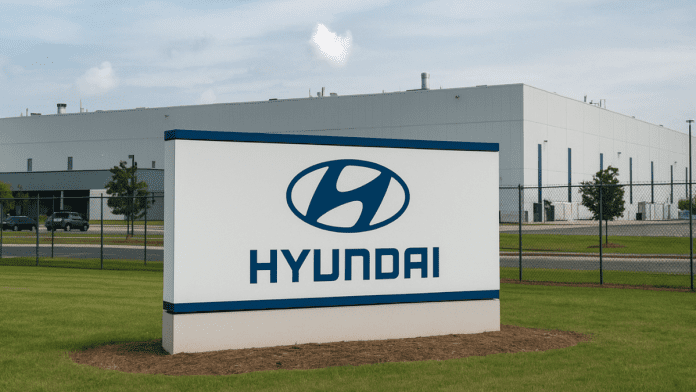🕒 Last updated on September 13, 2025
A large battery plant in Georgia, co-owned by Hyundai and LG Energy Solution, is now facing a major delay.
Massive raid leads to unexpected factory disruption
The factory, which is part of a $7.6 billion complex, was supposed to start operations later this year. But after a massive immigration raid last week, the launch has been pushed back by at least two to three months.
The raid was historic in size. Officials described it as the largest single-site enforcement action in the history of the U.S. Department of Homeland Security. Nearly 475 workers were taken into custody, and most of them were South Korean nationals. The people detained were not direct employees of Hyundai but were working through suppliers connected to LG.
The plant plays a key role in Hyundai’s plans to expand electric vehicle production in the U.S. It was designed to supply advanced batteries needed to power the company’s new electric models. A delay of this size means Hyundai will now have to adjust its short-term production strategies until the facility becomes operational.
Specialized workers caught in the center of the raid
The workers affected by the raid were mostly skilled specialists. These kinds of workers are often required during the early phases of building large industrial facilities. In the case of an advanced battery plant, special machinery and technology must be installed, tested, and brought online before production can begin.
Hyundai’s leadership explained that such skills are not always available locally in the United States. That is why international workers are often brought in for the construction and setup phase. These specialists bring knowledge about how to handle complex equipment that cannot be easily replaced.
ICE detains LA father of 4 Jorge Cruz in front of family, despite green card
The raid, however, left a sudden gap in manpower. With hundreds of workers removed from the project, progress on several parts of the plant came to a halt. This disruption explains why the startup timeline has been extended by several months.
The scale of the raid also took the company by surprise. When news first broke, there were immediate questions about whether Hyundai’s own employees were involved. It was later confirmed that the workers in question were connected to suppliers and contractors, not Hyundai staff.
Ripple effects across the auto industry
The impact of the raid goes far beyond just one facility in Georgia. Reports have surfaced that other LG-linked plants across the United States have also felt the shock. Workers at different sites, including those co-owned with other automakers, were asked to return home. This has created ripple effects that may cause further slowdowns in battery-related projects nationwide.
For Hyundai, the immediate concern is to keep its electric vehicle production steady while waiting for the plant to come online. To handle this, the company plans to source batteries from other locations. One option is another Georgia facility, which is jointly operated with SK On, another Korean battery maker. This alternative supply line will help Hyundai manage demand in the short term.
The Georgia battery complex is a crucial investment for both Hyundai and LG Energy Solution. With a total value of $7.6 billion, it represents one of the largest projects of its kind in the U.S. The site is expected to play a central role in powering future electric cars for Hyundai. That is why even a two-to-three-month delay is being seen as significant.
The situation also shows how global the supply chain for electric vehicles has become. Building and running a battery plant involves knowledge and technology from across the world. At the same time, events like the raid highlight how vulnerable these international projects can be to unexpected government actions.
Despite the challenges, Hyundai has stated that it will manage the delay and continue to move forward with its electric vehicle plans. The company has made it clear that it was not directly involved in the immigration issues that triggered the raid, but the impact has still been substantial.
The fallout has spread quickly. With hundreds of skilled workers detained and other plants also seeing disruptions, the raid has become a key event in the auto industry this year. Many companies are now watching closely to see how long it takes for affected projects to get back on track.

